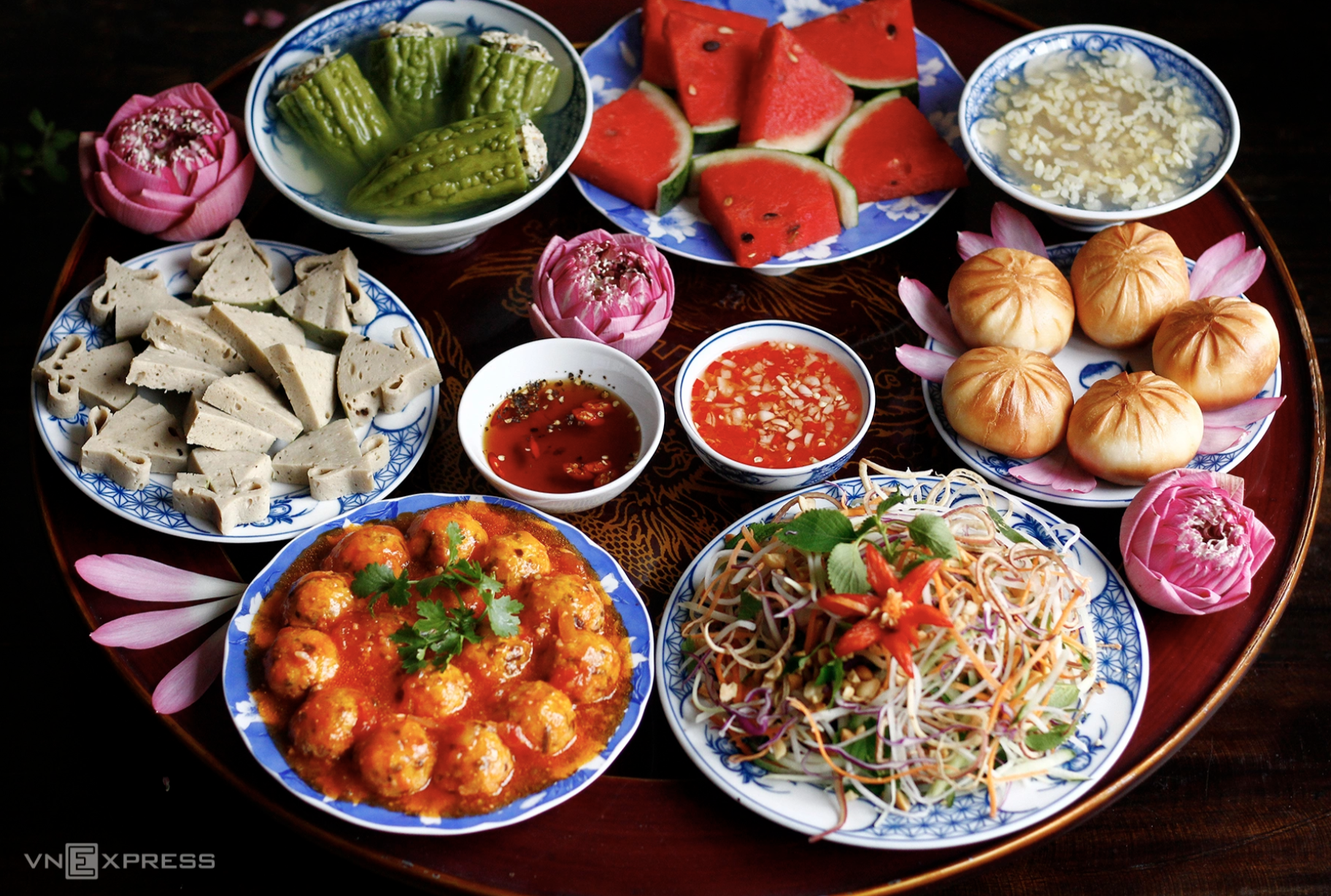Nurse Nguyen Thi Thu Hang from the Department of Traditional Medicine at the University of Medicine and Pharmacy Hospital in Ho Chi Minh City - Campus 3, explains that high cholesterol (dyslipidemia) is closely linked to diet and lifestyle. It's a silent condition, often difficult to detect in its early stages.
Not only those who eat a regular diet but also vegetarians can develop high cholesterol if their meals are not well-planned or nutritionally balanced.
Consuming too much added sugar: Consuming sugary drinks, candy, milk tea, and pastries while following a vegetarian diet increases the risk of obesity, metabolic disorders, and high triglycerides.
The World Health Organization (WHO) recommends no added sugar for children under 2. For adults, free sugar intake should not exceed 50g/day (equivalent to 10% of the energy in a 2,000 kcal diet). The ideal level is below 5%.
Eating too many refined carbohydrates: White rice, white noodles, vermicelli, pho, bread, processed potatoes, and similar foods can easily lead to excess calories for vegetarians, causing the body to convert excess sugar into triglycerides—a direct contributor to high cholesterol.
Carbohydrates should account for about 45-65% of total energy intake, with preference given to brown rice, oats, sweet potatoes, and whole grains.
Processed vegetarian foods: Vegetarian sausages, vegetarian ham, and vegetarian sausages are often made from refined starches, vegetable protein, palm or coconut oil, along with high amounts of salt and additives. Frequent and excessive consumption can increase bad cholesterol and cause lipid disorders.
A healthy vegetarian diet should be distinct from a diet reliant on processed foods. Prioritize fresh, minimally processed foods.
 |
Vegetarian dishes for a full moon festival. Photo: Bui Thuy |
Incorrect use of oil: While vegetable oils are generally healthier than animal fats, repeated frying or overheating (above 180 degrees Celsius) creates harmful fats. In particular, coconut and palm oils are high in saturated fat, which can raise LDL cholesterol.
Avoid reusing oil multiple times, storing it for too long, and discontinue use when the oil turns black.
Lack of fiber and vitamins: A vegetarian diet lacking in green vegetables, fruits, and whole grains increases bad cholesterol and triglycerides, promoting the formation of arterial plaque that causes atherosclerosis, increasing the risk of heart disease and stroke.
Vitamin B12 deficiency: Vitamin B12 is abundant in meat, eggs, milk, and seafood. Vegetarians are prone to deficiencies in this nutrient, leading to elevated homocysteine levels in the blood, causing vascular endothelial inflammation, and promoting atherosclerosis.
Omega-3 deficiency: Lack of omega-3s from oily fish (salmon, tuna, sardines) affects cardiovascular function and imbalances blood lipids. Vegans can supplement with algae oil, chia seeds, flax seeds, and walnuts.
The DASH (Dietary Approaches to Stop Hypertension) diet not only helps control blood pressure but also helps lower bad cholesterol (LDL), improves blood lipid profiles, and prevents cardiovascular disease. Combining this diet with a healthy, diverse, and balanced vegetarian approach is a sustainable solution for managing cholesterol and improving overall heart health.
In addition to diet, maintain a healthy lifestyle: Engage in physical activity for at least 150 minutes per week, manage weight, control stress, quit smoking, and limit alcohol consumption.
Get regular blood tests. Adults should have their cholesterol checked every 3-5 years. Those with risk factors should be monitored more frequently as advised by their doctor.
My Y












